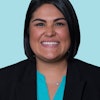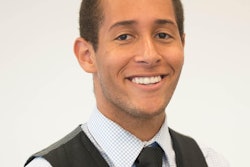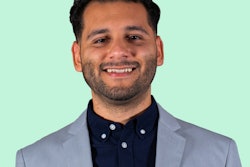Institution: The University of Toledo
Graduate Program: Ph.D., Social and Philosophical Foundations of Education
Education: B.A., Communication Arts, Wilmington College of Ohio; M.A., Educational Leadership, Eastern Michigan University; Graduate Certificate, Foundations of Peace Education, The University of Toledo
Mentor: Sigrid Solomon, Art Brooks and Dr. Corey Cockerill, Wilmington College of Ohio; Robert Bruce, CHOICES, Inc.; Dr. Ketwana D. Schoos, Community College of Allegheny County; Kathy King and Tracy Cook, Cincinnati ProKids; Ron and Phyllis McSwain
Quatez Bernard Scott has been working in higher education for almost a decade, mostly in multicultural and student affairs. His current position is intercultural specialist at the Bolinga Black Cultural Resources Center at Wright State University.
“He is impassioned and passionate about contributing to the academy and to the research, scholarship and practice,” says Dr. Ketwana D. Schoos of Quatez Bernard Scott, who is currently completing his doctorate at The University of Toledo.
“He’s a scholarly practitioner of changing the dynamic and not just putting lip service towards it,” Schoos adds. “He’s trying to push forward the agenda to have true, genuine diversity, equity, and inclusion so that people … who are marginalized can feel supported.”
Balancing full-time employment with writing his dissertation, which is called “A Pioneering Antiracism Effort in Higher Education: A Single Case Study of a University Racial Equity Center in a Predominantly White Institution,” has been stressful. Compounding that are pressures and constraints due to the pandemic as well as dealing with significant trauma suffered throughout his childhood and adolescence as he dealt with multiple placements in the foster care system and then independent living programs.
“As much as the pandemic has been unhelpful in some areas, it’s definitely encouraged me to get some other areas of my life worked out,” says Scott, who is in counseling.
He continues to collect data for his dissertation, which is qualitative, so he’s collecting and writing at the same time. Reading about justice, antiracism, racism, and history fuels his determination to make an impact.
“The only way that we can move forward is if we identify systemic and social issues and also put actions in place to transform those situations,” says Scott. “Being able to identify the folks who don’t necessarily have opportunities or aren’t being provided opportunities is what drives my work.”
At present, he works with marginalized students to help them feel empowered on campus and with faculty and staff to create an inherent sense of belonging for those students. Following completion of his doctorate, Scott envisions a multi-faceted career. He would like to be a professor — he has done some teaching — but also would like to be a DEI a consultant and podcaster.





















